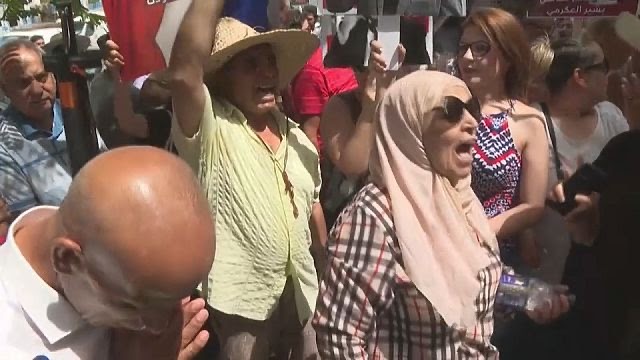Since February, approximately twenty opponents and prominent figures from the business and media sectors have been arrested as part of an investigation into alleged "plotting against state security." President Saied, who assumed full power in the country in the summer of 2021, has labeled them as "terrorists."
Imed Khemiri, spokesperson for the Islamo-conservative Ennahdha party, a major opposition coalition, referred to the arrests as "politically motivated." He emphasized that these imprisonments are indicative of a suffocating political crisis in Tunisia but stated that they cannot silence the voices of freedom.
Abdelaziz, the son of Issam Chebbi, a leader of the National Salvation Front (FSN) and once a fierce opponent of former dictator Zine El Abidine Ben Ali, expressed his emotional distress, saying, "My father is paying the bill for his love of Tunisia." He highlighted concerns about the independence of the judiciary, stating, "The judiciary is at the orders of the executive and is not independent," according to Mr. Chebbi.
Tunisia is facing not only a political crisis triggered by President Saied's consolidation of power but also a severe financial crisis as the country grapples with heavy debt. Seeking foreign aid, Tunisia's current situation has led European parliamentarians to voice their opposition to any "unconditional agreement" between the European Union and Tunisia due to the "excesses" committed by President Saied.
The European parliamentarians urged Tunisian authorities to release arbitrarily detained opponents, protect the rights of Tunisian citizens, and support their ongoing struggle for democracy. The campaign of arrests launched since February has primarily targeted prominent political leaders, drawing condemnation from Amnesty International, which denounced it as a "politically motivated witch-hunt." The detainees have been questioned about their interactions with foreign diplomats and media interviews, according to the NGO.



